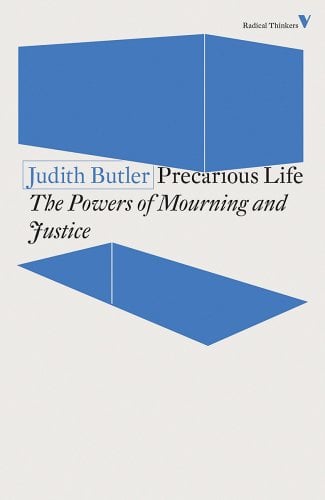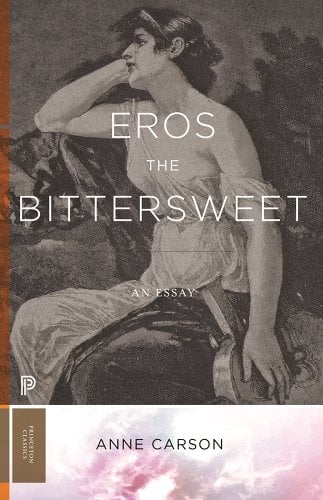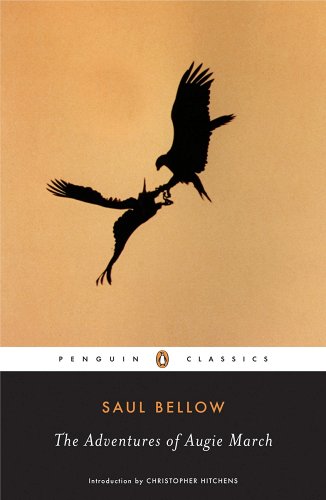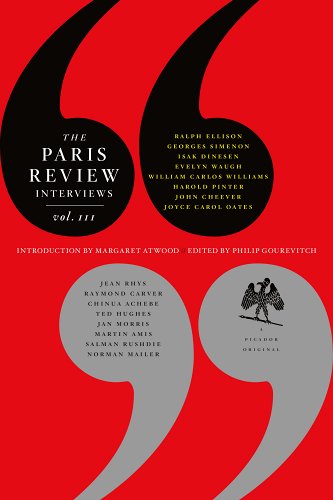If I had to pick the literary crew Karla Cornejo Villavicencio would sit with in the dining hall, it would be Myriam Gurba, Virginie Despentes, and Jenny Zhang. Those three cut to the heart of things with whip-smarts and wryness. In her eponymous novel Catalina (as in her National Book Award finalist, The Undocumented Americans), Cornejo Villavicencio is similarly provocative and undeniable.
Article continues below
“Catalina is a fighting cock you put all your money on,” her grandfather says at one point. “It doesn’t matter who they place in front of her, what cage she’s put in, what country in the world she has to fight in, she’s going to win.”
Catalina is, like Cornejo Villavicencio was (see: this essay), an undocumented undergraduate at Harvard who was born in Ecuador. We follow Catalina’s final year at the institution, which has felt at times like a refuge and others a scalding affront. Her undocumented working-class grandparents who raised her in Queens “possessed something loads of Americans wanted”: a child at Harvard. Catalina revels in friendships and literature.
But she also moves through a world of academic and class elites that, like the theoretical texts she has to read, are meant to shut people like her out. “Did my classmates ever think of us?” Catalina asks. “I wanted to reach my hand into their brains through their ears and scratch in new grooves with my acrylic nails and then they would care.”
While Catalina is a brilliant bookworm, like most college students she’s a bit of a mess. She shrugs off gentle suggestions of therapy, takes NyQuil to sleep for hours on end when she’s sad and overwhelmed. She starts to date a rich, white, chisel-cheeked anthropology major who is obsessed with Latin America (*red flags flap wildly*).
But what makes Catalina unlike most college students is her insight. At one point Catalina sees a wealthy white family eating dinner. “They were nothing special,” she says. “That’s the most humiliating part of all this. The rest of the world is plundered and bombed so rich white people can eat Caesar salad with each other and be inane.”
The precarity of her and her grandparents’ lives because of their immigration status makes these humiliations more palpable. (Like Chekov’s gun, this gun goes off—though in a simultaneously devastating and common way.)
Catalina must face all this alongside the discord between what Harvard and its darlings telegraph and the deeper implications are of what they’re saying, often about her. Museums are a consistent locale, which builds a larger argument regarding institution’s representatives who exploit communities throughout history and the world, extract their resources, and leave cultural devastation in their wakes.
A subplot of the book is that Catalina’s sort-of boyfriend works under a white anthropology rockstar who is attempting to “decode” the Andean khipu, an ancient fiber-based recording device, which was systemically eradicated by Spanish colonizers.
“They wanted to document everything. It was this initial impulse to document the world that they were themselves destroying that made my blood boil,” Catalina says. “I rooted against the khipu codebreakers. I hoped they would never unlock the secrets of the khipu. I hoped that, for them, it remained an unfulfilled longing.”
Not everything needs to be documented in order to hold meaning.
Cornejo Villavicencio tells us about her to read pile, “In the summer, I like to read in the kiddie-pool in my backyard. This copy of The Life of Saint Katherine of Alexandria fell into the water more than once (twice) and is in pretty good shape given all it has been through.”
*
Cristina Beltrán, Cruelty as Citizenship: How Migrant Suffering Sustains White Democracy
University of Minnesota Press is—I find—the best in the game for scholarly books. They’re often genre-bending, undeniably compelling, and readable. Grace M. Cho’s Haunting the Korean Diaspora, Akira Lippit’s Atomic Light (Shadow Optics), Dana Seitler’s Atavistic Tendencies—the list goes on and on (and on).
Beltrán’s Cruelty as Citizenship is from Minnesota’s “Forerunners: Ideas First” series, which is “Short books of thought-in-process scholarship, where intense analysis, questioning, and speculation take the lead.” In Cruelty as Citizenship, Beltrán attempts to answer the question “Why are immigrants from Mexico and Latin America such an affectively charged population for political conservatives?”
The jacket copy continues:
More than a decade before the election of Donald Trump, vitriolic and dehumanizing rhetoric against migrants was already part of the national conversation. Situating the contemporary debate on immigration within America’s history of indigenous dispossession, chattel slavery, the Mexican-American War, and Jim Crow, Cristina Beltrán reveals white supremacy to be white democracy—a participatory practice of racial violence, domination, and exclusion that gave white citizens the right to both wield and exceed the law.

Judith Butler, Precarious Life: The Powers of Mourning and Violence
Butler penned this essay collection in the wake of the US invasion of Iraq and a post-9/11 America. In 2004, Mary Midgley reviewed the collection in The Guardian, writing,
This little book contains five fairly indignant essays by the distinguished Californian feminist and literary critic Judith Butler, written in protest against current American policies governing the Iraq war, the treatment of Palestinians and the state of the Guantánamo prisoners. Butler sharply rejects any idea that the destruction of the World Trade Centre justifies these violent measures. As [they put] it: “That US boundaries were breached, that an unbearable vulnerability was exposed, that a terrible toll on human life was taken, were, and are, cause for fear and mourning; they were also instigations for patient political reflection….The dislocation from first world privilege, however temporary, offers a chance to start to imagine a world in which that violence might be minimised, in which an inevitable interdependency becomes acknowledged as the basis for global political community….Final control is not, and cannot be, an ultimate value.’ [They argue] this case well and sharply.”

Karen E. Fields & Barbara J. Fields, Racecraft: The Soul of Inequality in American Life
“Racecraft: The Soul of Inequality in American Life is the first book I’ve read on the subject of race that speaks accurately to my lived experience,” writes Maria Bustillos in the Los Angeles Review of Books.
[T]he authors of Racecraft, Karen E. Fields and Barbara J. Fields (who are academics, and sisters—Barbara a historian, and Karen a sociologist) have undertaken a great untangling of how the chimerical concepts of race are pervasively and continuously reinvented and reemployed in this country, all without drawing a single circle themselves. Instead, they describe the circles drawn by others, you might say, and patiently erase each one. “Racism is first and foremost a social practice…an action and a rationale for action,” the Fieldses write. Though the concept of race has no genetic or scientific basis, the hierarchical structures we’ve built using this false idea are alive and well, and we’re all complicit in their persistence.”
Bustillos goes on to explain,
if there’s no rational basis for racial discrimination, where does it even come from? It works like this: racecraft, a kind of magical thinking that is ready, even eager, to embrace insane notions from eugenics to the Bell Curve, is everywhere employed to lend credibility to the illusion of something called race. Racecraft fixes the illusion of race in the cultural consciousness as a reality, thereby creating a basis for the many and various oppressions that constitute racism.

John Capgrave, The Life of Saint Katherine of Alexandria (trans. Karen A. Winstead)
The jacket copy for this compelling text from the Middle Ages states,
The fifteenth-century scholar and Augustinian friar John Capgrave took as his subject the virgin martyr Katherine of Alexandria, who was an anomalous cultural icon, a scholar, and a sovereign whose story unsettled traditional gender stereotypes yet was widely popular throughout Western Europe. Capgrave’s Life of Saint Katherine of Alexandria (ca. 1445) stands out among the hundreds of surviving vernacular and Latin narrations about the saint by its intricate plotting, its moral complexity, its obtrusive Chaucerian narrator, and its attention to psychology, history, and theology. The Life of Saint Katherine is a bold literary experiment that transforms the genre of the saint’s life by infusing it with conventions and techniques more often associated with chronicles, mystery plays, fabliaux, and romances. In Capgrave’s hands, Katherine emerges as a sensitive and studious young woman torn between social responsibilities and personal desires….Winstead’s translation—the first into idiomatic modern English—brings to life Capgrave’s sharply drawn characters, compelling plot, and complex, unsettling moral.

Anne Carson, Eros the Bittersweet: An Essay
Color me embarrassed as I didn’t know this was Carson’s first publication, a reformulation of her dissertation for her PhD in Classics, Odi et Amo Ergo Sum. In Eros the Bittersweet, Carson considers eros through ancient Greek texts (the title comes from Sappho).
In a detail I love, it turns out Carson learned Greek thanks to a Latin teacher high school teacher who, when she found out Carson was curious about the language, began teaching her Greek during lunch breaks. “It often happens to me trying to translate something in Latin or Greek that I come to a piece that doesn’t make sense, but it still seems true, it seems like a nub of something I should get to,” Carson says in an interview, “so I just secrete it into writing and hope it’ll work its truth by itself without me knowing how to control it.”
John D’Agata in a 2000 (!) Boston Review review of a different Carson text writes,
In 1986, when Eros the Bittersweet was published, it first stunned the classics community as a work of Greek scholarship; then it stunned the nonfiction community as an inspired return to the lyrically based essays once produced by Seneca, Montaigne, and Emerson; and then, and only then, deep into the 1990s, reissued as “literature” and redesigned for an entirely new audience, it finally stunned the poets.

Saul Bellow, The Adventures of Augie March
In Alan Cheuse’s brief essay “Saul Bellow, An Appreciation” in NPR, Cheuse writes,
Saul Bellow published The Adventures of Augie March in 1953. It won him national recognition, a National Book Award, a major place at the American literary table. “The book just came to me,” he wrote. “All I had to do was be there with buckets to catch it.”
Bellow won the Nobel in Literature almost twenty-five years later. In his 1976 Nobel Lecture, he explains how “we stand open to all anxieties. The decline and fall of everything is our daily dread, we are agitated in private life and tormented by public questions.” (It is heartening to read of public and private terror plaguing people then, too.)
Bellow finishes his lecture, stating,
The novel can’t be compared to the epic, or to the monuments of poetic drama. But it is the best we can do just now. It is a sort of latter-day lean-to, a hovel in which the spirit takes shelter. A novel is balanced between a few true impressions and the multitude of false ones that make up most of what we call life. It tells us that for every human being there is a diversity of existences, that the single existence is itself an illusion in part, that these many existences signify something, tend to something, fulfill something; it promises us meaning, harmony and even justice.

Philip Gourevitch, The Paris Review Interviews, Vol. III
The Paris Review maintains a mind-bending back catalog of creative pieces and interviews. For some time, they have published some of them into single volumes. This collection includes interviews with Chinua Achebe, Jean Rhys, Martin Amis, and others.
It also includes Ralph Ellison who was interviewed by Alfred Chester and Vilma Howard in 1955 on this incredible National Book Award-winning first novel, Invisible Man. At one point Chester and Howard put forward to Ellison that “you consider your novel a purely literary work as opposed to one in the tradition of social protest.”
Ellison responds:
Now, mind, I recognize no dichotomy between art and protest. Dostoyevsky’s Notes from Underground is, among other things, a protest against the limitations of nineteenth-century rationalism; Don Quixote, Man’s Fate, Oedipus Rex, The Trial—all these embody protest, even against the limitation of human life itself. If social protest is antithetical to art, what then shall we make of Goya, Dickens, and Twain? One hears a lot of complaints about the so-called protest novel, especially when written by Negroes, but it seems to me that the critics could more accurately complain about the lack of craftsmanship and the provincialism which is typical of such works.
